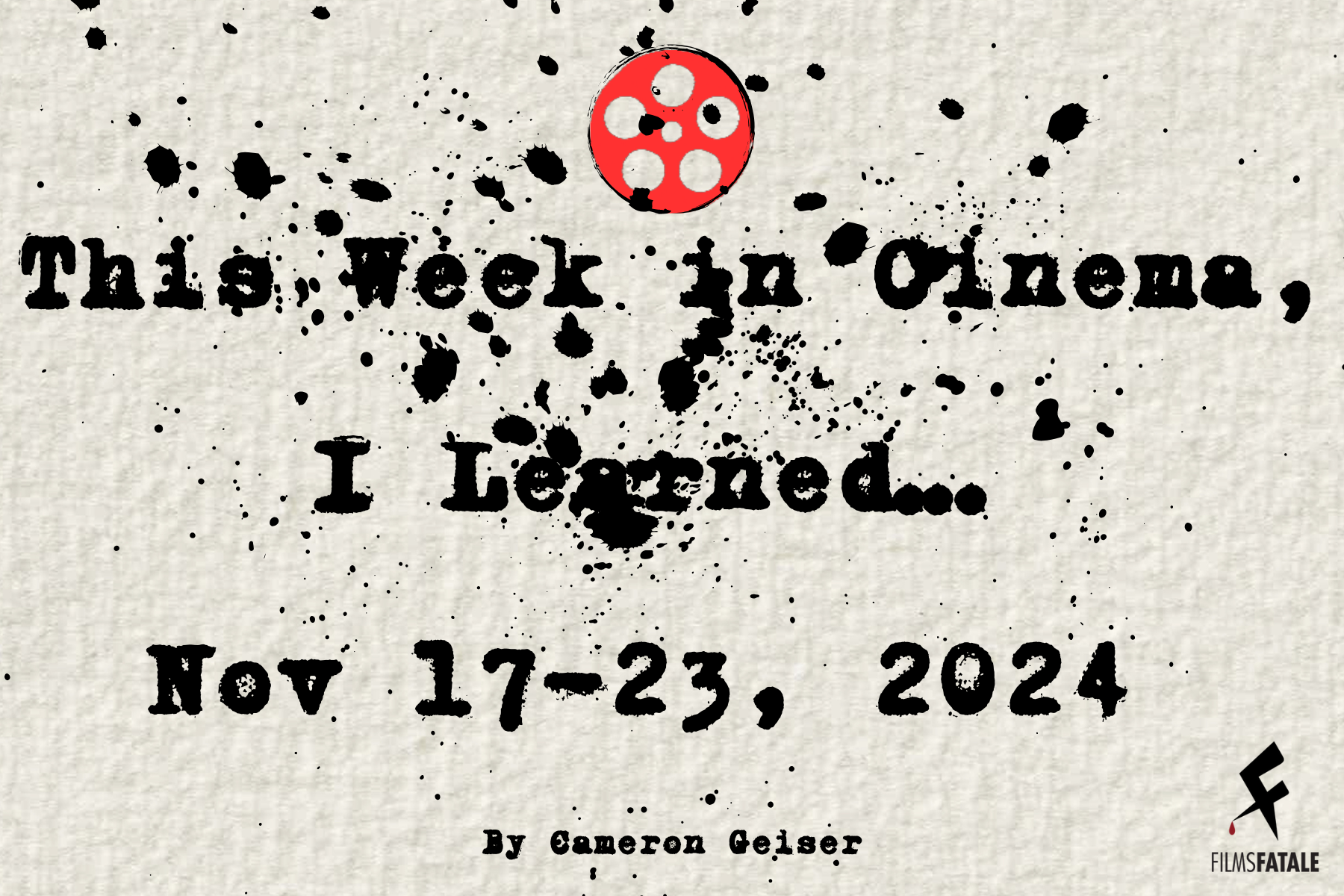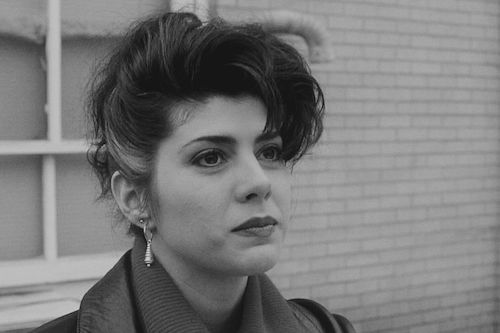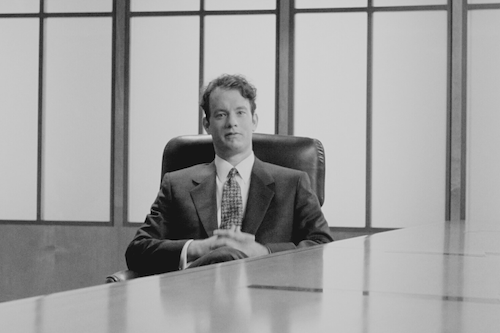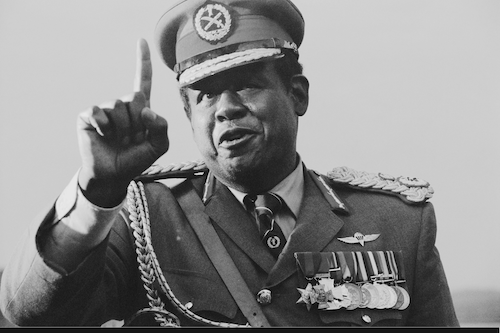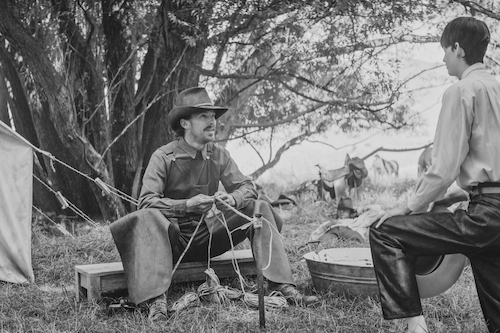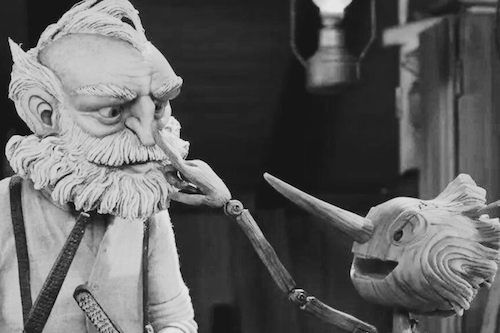This Week in Cinema, I Learned…Nov 17-23 2024
Written by Cameron Geiser
Welcome to This Week in Cinema, a yearlong film criticism project wherein I will be watching a new film that I haven't seen every single day.
Three of the films this week are courtroom dramas, a major subgenre of American Cinema for decades and, for the most part, they did not disappoint. The other four are a spread of a couple period piece dramas with incredible tension, a good old fashioned Hollywood Noir made in the 1990s, and the best adaptation of Pinocchio since the original Disney animation. While this week's films don't quite reach the heights of last week's scores, each film had something of value to offer. However, the only one that truly surprised me and blew away my expectations was Guillermo Del Toro's adaptation of Pinocchio. Amazingly it is the third adaptation of that story from 2022 and it is easily the best of the three. The other two were Disney’s unadvisable live action uncanny valley remake of their animated film, and then there was the Pauly Shore starring 3D animated garbage can of a mess that looks like it was made twenty-five years ago on a budget. Guillermo took the premise and put his own highly creative take on the material with impressive stop motion animation.
Anyways, the lesson of the week is that if you're going to tread on well worn paths in storytelling, try something new. Obviously this is most present in Pinocchio, but L.A. Confidential also tries a few new things while paying homage to Hollywood's past too. My Cousin Vinny also attempts to upend expectations with Joe Pesci's unconventional tactics as a lawyer. The Trial of The Chicago 7 adapts real world events, but since it was written and directed by Aaron Sorkin, he brings his signature snappy dialogue and West Wing sensibilities to the courtroom drama, a natural fit to be sure. The Last King of Scotland, Philadelphia, and The Power of The Dog all do this to some degree, but to a lesser extent than the others. Philadelphia brought the AIDS issue and the LGBT community to the forefront of the courtroom drama so for its time it probably seemed more impressive for even covering the topic through adaptation, but it feels a bit stifled in tone looking back. The Last King of Scotland took an interesting story and attempted unique aspects with the filmmaking that made the story stand out- aside from the superb performances from the co-leads. Lastly The Power of The Dog takes the familial Western drama and explores masculinity, sexuality, and morality in unexpected ways with a powerful cinematography that lingers without dragging any scenes or beats out for too long. Each film included this week does something that makes it worth your time for a watch, but your mileage may vary as they aren't all on an equal playing field in this regard. I recommend watching all of them at some point to see what sticks with you going forward.
November 17th
L.A. Confidential (1997)
3.5/5
This is a 1990’s throwback to the Noir films of the 1940’s and 1950’s. L.A. Confidential is more interested in recreating the costumes, styles, set design, and twisty narrative flow than it is stylistic filmmaking however. The story follows three different cops working for the L.A.P.D. in 1953 as they each investigate various murders, prostitution rings, high profile celebrity arrests, and scandalous tabloid scheming all across the city of angels. Those three cops are Detective Lieutenant Edmund "Shotgun Ed" Exley (Guy Pearce), Officer Wendell "Bud" White (Russell Crowe) and Detective "Hollywood Jack" Vincennes of the narcotics unit (Kevin Spacey). Each cop has their different styles, morals, and motivations though. Exley is the straight arrow Detective that plays mostly by the book while White is, ironically, a punchy “White Knight” type who uses violence first to solve his problems. Hollywood Jack Vincennes is the sleaziest of the three, often collaborating with the Tabloid Journalist Sid Hudgens (Danny DeVito) to set up Hollywood Actors in various drug and sex scandals while occasionally doing the right thing. This was a fun one, it may not land in the category of “all time greats” when it comes to Noir or Neo-Noir films, but it is solidly entertaining throughout. I wonder if this was the character that inspired the South Park episode decades ago that made fun of Russell Crowe through the song “Fightin’ round the world”, which was very accurate to his character in this film. L.A. Confidential is a perfectly well crafted big budget ode to old Hollywood, and a thoroughly good time.
November 18th
My Cousin Vinny (1992)
3.5/5
This is easily the weakest of the courtroom dramas this week, but it’s also the most fun. My Cousin Vinny follows two New York City youths, one of which was played unexpectedly by Ralph Macchio of Karate Kid fame, who get wrapped up in accusations of murder when traveling through a small town in Alabama. Things get dicey so they call up Cousin Vinny (Joe Pesci), a Brooklyn based lawyer. Well, he’s sort of a lawyer. He just has no real experience, won no cases, and only passed Law school on his sixth attempt. The script is weak and predictable, and the filmmaking is workmanlike and bland if competent, but the joy in the movie is in the performances. Joe Pesci sells the movie, even if his character isn’t always the picture of consistency from scene to scene. Marisa Tomei as his girlfriend, and Fred Gwynne as the judge carry the rest of the movie through charisma and comedy. It’s a bit of a farce, but it was a good time.
November 19th
The Trial of The Chicago 7 (2020)
3.5/5
This film was a very frustrating watch. Not because of the filmmaking, or the performances, nor the script. As a lens looking back on the events of the 1968 Democratic National Convention in Chicago, it was painful to see many modern parallels to today. The Trial of The Chicago 7 details the drama inherent in the fallout of the political riots that took place, and all of the hype, fanfare, and theatrics of that courtroom- the least of which was an objective search for justice. At least, as it was depicted. I don’t really know where Aaron Sorkin stands on political ideology, but this film (and his West Wing past) gives me pause and leads me to think that he’s firmly in the neoliberal camp of “Good” Democratic Politics. Where true Justice is second, concessions to power are first, and what we are left with is middling accomplishments without any real substance of change or movement in the right direction ultimately. It’s the age old debate of liberal versus leftist. In this film Sacha Baron Cohen plays Abbie Hoffman, the leftist on one end of the spectrum with Eddie Redmayne starring as Tom Hayden, the liberal at the opposing end. There were many other excellent performances by major players in Hollywood, and they are all commendable for executing quality roles. However, I don’t think I will revisit this movie as it is an infuriating reminder of the continued use of the courts to punish dissent instead of finding those responsible (The Chicago Police Department) for the crimes committed.
November 20th
Philadelphia (1993)
3.5/5
For a movie starring both Tom Hanks and Denzel Washington, both arguably near the height of their powers at the time, I didn’t expect a courtroom drama surrounding the headline leading topic of HIV/AIDS to be this restrained. Philadelphia certainly isn’t a bad movie by any standard, but I constantly found the pacing to be rather tepid if I’m being honest. The story at hand is that Andrew Beckett (Tom Hanks), a lawyer at a well established law firm decides to hide his sexuality and newly realized HIV status because he fears it would negatively impact his career if discovered. Once a coworker does indeed notice the signs of the illness, Beckett is fired shortly thereafter. Beckett chooses to fight his former employer though and teams up with fellow lawyer Joe Miller (Denzel Washington) the only working lawyer who would take his case. In the courtroom scenes that follow Miller defends Beckett’s record and humanity from gross stereotypes and blatant prejudice. The filmmaking is serviceable, but it doesn’t make itself seen or felt often. The editing is more akin to a TV show of that era than a large Hollywood production, but again, it isn’t bad, just so-so. The best aspect of the film are the performances from Hanks and Washington, however they were both in far more enticing roles just before and after Philadelphia.
November 21st
The Last King of Scotland (2006)
3.5/5
The Last King of Scotland is a historical drama with some fictitious additions used to better portray the brash personality of the film’s focus, the charismatic and barbaric General Idi Amin as portrayed by Forest Whitaker. That fictitious aspect is mostly relegated to the role of Dr. Nicholas Garrigan as played by James McAvoy. In the early 1970’s Dr. Garrigan decides to travel to Uganda to work at a Missionary owned by a colleague, seeking an adventurous change in his life. Shortly after arriving General Amin gives a rousing speech that Dr. Garrigan witnesses, which he finds both enticing and something to be wary of. Later the good Doctor comes upon the General’s caravan stopped in the road due to a mishap with a cow in which he injured his hand. Garrigan decides to help, but shoots the braying cow both out of mercy, and to better focus on helping the bratty General. Once Amin hears that Garrigan is Scottish, he immediately changes his tune to a sunny disposition due to his reverence of the Scots, who also fought the English in the past. Forest Whitaker steals every scene he is in with this biting and wide-ranging role. James McAvoy also turns in a role that was well fit for him. A nonchalant but anxious enough when needed Scot, who is also a little sex fiend which is fitting if you have seen Filth (though that is the extreme end of that sort of thing). I was also impressed with the editing, color grading, and framing as all of these aspects were unique choices. If you’re looking for a performance forward film about the dangers of demagoguery, this one is worth a watch.
November 22nd
The Power of The Dog (2021)
4/5
I have not seen much of filmmaker Jane Campion’s work, but this film certainly has me interested in seeking out her filmography more in the future. Adapted from the book of the same title, the story here is principally interested in the four major characters and how the relationships between all of them develop and change over time. We’re first introduced to two brothers, Phil (Benedict Cumberbatch) and George (Jesse Plemons) Burbank who own a successful ranch near the foothills and open plains of Montana. Campion eventually threads in Rose (Kirsten Dunst) and her son Peter (Kodi Smit-McPhee) who both work at a small inn in the town that the Burbank brothers stay at while on a cattle drive. The brothers are a mismatched combination of stereotypical archetypes of male conduct in that era. George as the soft spoken bourgeoisie and Phil appearing as the rough and bawdry, antisocial “man’s man”. Phil was a Yale Graduate studied in Classical literature, while George is the one eventually revealed to care more about appearances and social status.
Phil, on the other hand, would rather be caked in mud than going to town in his Sunday best. I was quite impressed with the cinematography imbued with psychological mystery, the patient and gradual pacing, and the painterly lighting. However it is the dialed in performances with depth and perfectly poised subtlety that complete the picture and make it one to watch. Kirsten Dunst in particular turns in a tortured, layered, performance as Rose. Throughout the film Phil is essentially attacking her with psychological warfare in tiny plucking ways either with his banjo, sharp tongue, or by eventually turning warmly towards her son Peter. The Power of The Dog reminded me of Giant, a similar plot in that a ranching family is thrown in a tizzy over the presence of a new wife in the house. The two are very different films though. Giant is a far reaching, decade spanning American Epic about a family that evolves with the changing landscape of Texas. Whereas The Power of The Dog is a far more intimate, slower, and rhythmic tale of sexuality, labor, and control told in Montana. While I prefer Giant as a film overall, The Power of The Dog has its own curious splendors just beneath the surface.
November 23rd
Guillermo Del Toro’s Pinocchio (2022)
4/5
Guillermo Del Toro’s Pinocchio was my favorite film of the week as it took a well established story and completely altered it in profound ways while maintaining the familiar elements of the tale. This stop motion musical adaptation of the nearly one-hundred and fifty year old book is unique enough that it stands apart from every other version with ease. Meshed with the grim realities of both World Wars in Italy and the rise of Fascism through Benito Mussolini’s totalitarian grip on power, Guillermo Del Toro’s version puts childlike anarchy and faith in the power of love front and center for his take on the wooden puppet’s story. Beautiful visuals aside, I was enamored by this take on Pinocchio from the beginning. With the death of Geppetto’s (David Bradley) first son Carlo by a bombing raid in World War One, the film begins mired in despair. Nearly twenty years later Geppetto, wallowing in a drunken rage filled with grief and despondency, builds the titular puppet out of the pine tree that grew over Carlo’s grave. In the depths of night a Woodland spirit (Tilda Swinton) witnesses Geppetto’s state and pities him.
She then gives life to the wooden puppet and charges a talking cricket, this time named Sebastian J. Cricket (Ewan McGregor) to be specific, to guide Pinocchio. His role is a bit different, he lived in the pine tree that Geppetto cut down and made into Pinocchio, and he’s an aspiring author too. The major bullet points of the original plot are touched upon, but without a sweaty anxiety about exact translations to the source material. For example, Pinocchio dies in this film, a lot. Every time he meets his demise he’s sent to the underworld where the anthropomorphized version of Death is a Sphinx, and also happens to be the sister of the Woodland fairy that gave life to Pinocchio (She is also voiced by Tilda Swinton as well). Death explains Pinocchio’s peculiar situation and the rules, and while he doesn’t quite understand initially- in time he comes to grasp at the meaning of his unending life, and the consequences of his revival system all too well. Guillermo Del Toro’s Pinocchio was a real treat. If only every remake of a well known property had the gumption to be this weird and unique!
Cameron Geiser is an avid consumer of films and books about filmmakers. He'll watch any film at least once, and can usually be spotted at the annual Traverse City Film Festival in Northern Michigan. He also writes about film over at www.spacecortezwrites.com.

